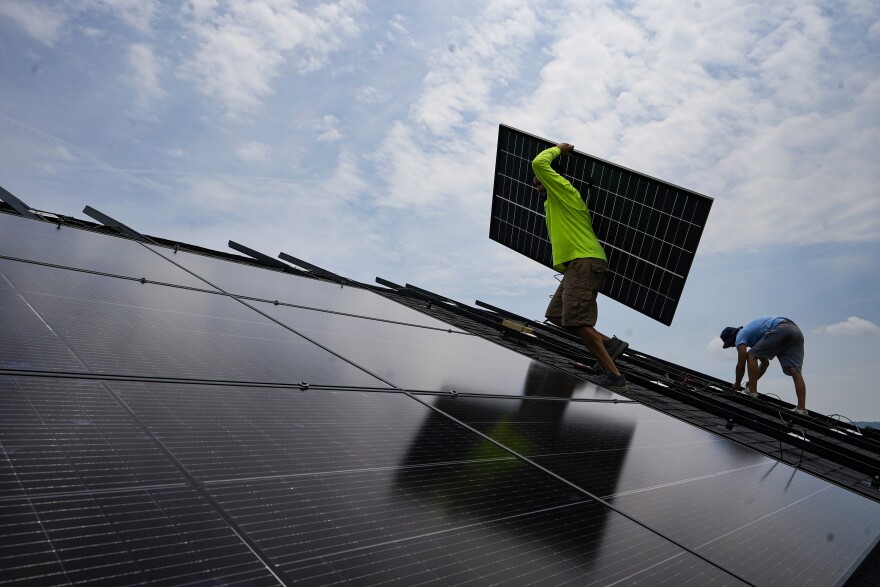Idaho Power wants to change how customers are compensated for generating extra solar energy at their homes and sending it back to the grid – a process known as net metering.
The Idaho Public Utilities Commission is holding two workshops this week to go over Idaho Power’s proposal.
One significant change would be a shift in how Idaho Power accounts for the timing of energy production. It wants to consider whether energy is produced during “on-peak” or “off-peak” hours, said Brad Heusinkveld, an energy associate at the Idaho Conservation League.
Idaho Power defines on-peak hours from 3-11 p.m. Mondays through Saturdays between June 15 and September 15.
“Power sold back to Idaho Power will be most valuable in the afternoon when demand for electricity is the highest,” Heusinkveld said.
Idaho Power is introducing this time-based system to more accurately price the energy customers are generating and exporting to the grid, said Jordan Rodriguez, a corporate communications specialist at the utility. Throughout years of net-metering discussions, Idaho Power has argued the current net-metering rates benefit the customers who participate at the expense of those who don’t.
These proposed changes could make it less valuable to install solar panels at home.
Currently, customers are paid at the retail rate – between eight and 10 cents per kilowatt-hour – to sell electricity back to the grid, but the company suggested a weighted average of 5.96 cents per kilowatt-hour instead. These changes wouldn’t apply to those who installed solar panels before December 2019.
Heusinkveld said from ICL’s perspective, Idaho Power’s new export credit rates don’t account for many of the benefits associated with residential solar power.
“Idaho Power still operates fossil fuel plants, and every clean electric watt can displace a carbon-based watt,” he said.
Additionally, increased residential solar production can extend the need for maintaining and building new infrastructure, he said.
Idaho PUC workshops on Idaho Power’s solar compensation proposal
Sept. 6 from 6-9 p.m.
- idahogov.webex.com
- Meeting number: 2630 705 2269
- Password: 0906Workshop
Sept. 7 from 12-3p.m.
- Meeting number: 2631 951 3680
- Password: 0907Workshop
Find reporter Rachel Cohen on Twitter @racheld_cohen
Copyright 2022 Boise State Public Radio



